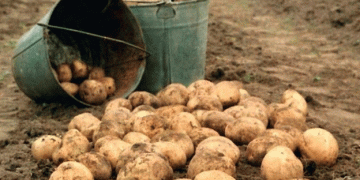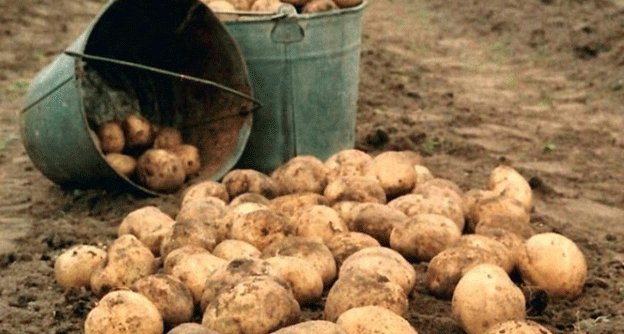The agricultural sector in the Komi Republic faced mixed outcomes in 2024. According to preliminary data from Komistat, both potato and open-field vegetable yields fell significantly below expectations. Despite these setbacks, greenhouse vegetable production recorded impressive growth, offering a silver lining for the region’s farmers.
Declining Yields for Potatoes and Open-Field Vegetables
The total potato harvest in Komi this year reached just 4,500 tons—a 15% decrease compared to 2023. Open-field vegetables fared even worse, with production dropping by 23% to a total of 788 tons. This decline can be attributed to several factors:
- Reduction in Cultivated Area: Farmers allocated less land to potatoes and open-field vegetables, possibly due to economic constraints or shifts in crop planning.
- Weather Challenges: Extreme conditions such as drought, frosts, or other unfavorable weather patterns likely impacted yields.
- Pest and Disease Pressure: Outbreaks of pests and diseases may have further reduced productivity.
Greenhouse Vegetables Shine
In contrast to the struggles in open fields, greenhouse vegetable production in Komi is flourishing. By October 2024, local agricultural enterprises had produced 10,800 tons of greenhouse vegetables—an increase of 14% compared to the same period in 2023. This growth underscores the potential of protected cultivation to mitigate the risks associated with unpredictable outdoor conditions.
Greenhouse farming offers several advantages:
- Climate Control: Protection from harsh weather and better temperature regulation.
- Efficient Land Use: Higher yields per unit area compared to traditional farming.
- Year-Round Production: The ability to meet market demand outside of traditional growing seasons.
The Economic and Environmental Implications
The decline in open-field crop yields highlights the vulnerability of traditional farming methods to external pressures. However, the expansion of greenhouse farming reflects a promising trend toward resilience and modernization in agriculture. Investments in greenhouse infrastructure may also help stabilize food supply chains and improve profitability for farmers in the region.
While 2024 posed significant challenges for potato and open-field vegetable production in Komi, the growth in greenhouse farming provides a beacon of hope. To ensure sustainable agricultural development, it is essential to address the root causes of declining yields and continue supporting innovations in protected cultivation. By adapting to changing conditions, Komi’s farmers can navigate uncertainties and secure a stable future for the agricultural sector.































